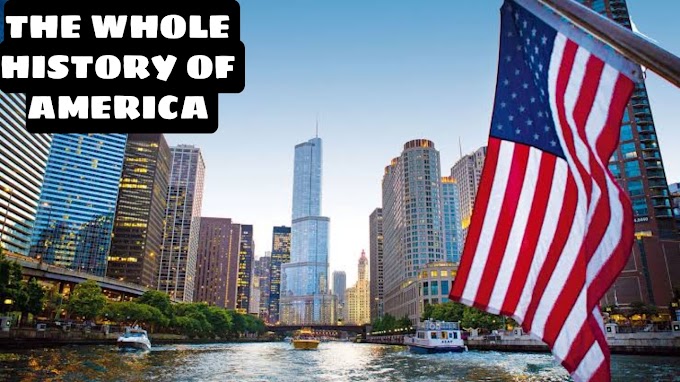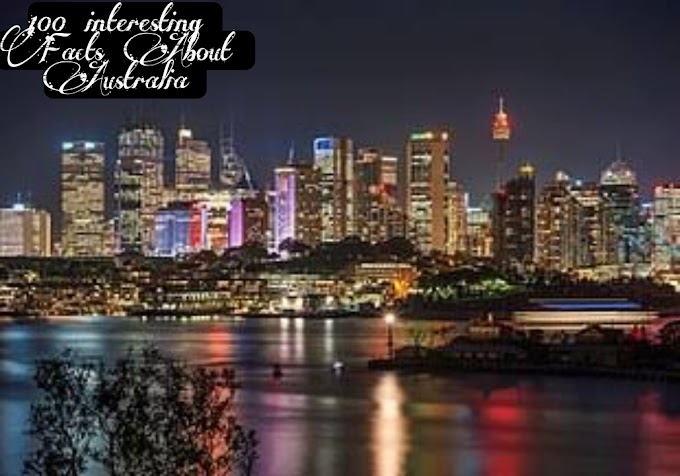THE WHOLE HISTORY OF INDONESIA
Hello Guys:
Welcome to Countries Facts so Today in this Article I will show you the whole history of indonesia is probably most commonly known around the world for one place bali an exotic and romantic vacation spot so many people view bali as the representation of indonesia as a whole but what about the rest of the nation how did that one island and the rest that make up the entirety of indonesia come to be what they are now where did the history of indonesia begin like its neighbor of malaysia indonesia can trace its first signs of modern human life all the way back to about 40 000 years ago although there is also archaeological evidence suggesting that 40 000 years may be an underestimate and other ancestors of today's humans may have been present in the region as long as 1.9 million years ago either way the earliest reliable evidence of a sophisticated civilization in current day indonesia dates back to only about 400 bc with the discoveries of indian trade goods in the region and inscriptions found in west java and eastern kalimantan it is also believed that trade with china would have been concurrent with the trade between the indonesian archipelago and india commerce with these particular foreign nations would have also brought the religions of buddhism and hinduism to the islands beginning or contributing to the outside influence on the region jumping ahead to the 7th century the powerful trade-oriented sri vijaya empire originating from the island of sumatra flourished from the malay peninsula down to java despite their remarkable success over multiple centuries the buddhist empire of sri wajaya faced its decline after the kola empire from india seized their samantran territory of palumbang and apprehended their king in 1025 from that point on the sri wajaya empire essentially collapsed making room for the hindu kingdom of the mahapahit empire founded in 1292 the majapahit empire rose to dominate the modern day indonesian region throughout the 13th and 14th centuries prospering through trade as the three wijaya empire had done before them still just as their predecessors the majapahit empire hit a wall and began a rapid downfall theirs came after the death of one of their leaders gaja mada in 1364 and the following death of the king hayam in 1389 leading up to this time the islamic faith found its way to the archipelago and began to really take hold over the ensuing centuries many different lesser-known sultanates found success throughout the islands as a result some even outlasting the dominion of the majapahit empire as these kingdoms continued to grow trade in and out of the region european powers became attracted to the spice market that it offered the first of such nations to arrive in modern-day indonesia were the portuguese and the spanish in the 16th century while spain did attempt to exert some dominance in the maliku islands also known as the spice islands their authority in any part of the indonesian archipelago was short-lived due to contesting efforts of portugal and later the dutch and british the portuguese were initially triumphant in the malay peninsula capturing malacca in 1511. from there they aimed their sights towards the spice islands beginning their bid to take control of the spice trade in while they had some levels of success they were fairly quickly pushed out through the arrival of the dutch by the 17th century in terms of the colonial powers the dutch were surely the most prominent intruder into the indonesian islands the first dutch expedition set off for the archipelago in 1595 under the command of cornelius de hootman and dropped anchor at the shore of west java around this time the dutch east india company was formed in order to control trade between the dutch republic and the nations throughout the indian ocean the dutch east india company was given a significant amount of autonomy by the dutch government allowing them to dominate trade throughout the east indies and keep their competitors notably the british and portuguese at bay while the original focus of the company was to maintain commercial authority and prosperity they began to shift their attention as they took control of java and its neighbors during the 17th century the dutch east india company made a gradual transition from a leading sea and trading power to more of a colonial type establishment after centering themselves in the fortified port of jakarta batavia or modern-day jakarta working to gain more jurisdiction throughout the indonesian islands the dutch east india company was also able to capture malacca from the adjacent malay peninsula in 1641 when the 18th century came around though the company began to struggle with corruption conflict and a slow collapse into bankruptcy which resulted in the dutch government revoking their charter and seizing all of their possessions in 1799 in 1800 the dutch east indies was founded made up of what would later become indonesia but for the time being served as the new dutch colonial administration in the archipelago this establishment grew over the 19th and part of the 20th century although some ups and downs such as the javanese war from 1825 to 1830 ending in a dutch victory did exist also in 1825 the dutch captured palumbang the former territory of the sri wajaya empire during this period the dutch also settled disputes and clashes with akka lombok and sulawesi and continued to expand their dominion in the course of the dutch colonization the people of the indonesian islands were treated vastly unfairly as dutch priorities shifted more towards agriculture the local farmers were mandated to set aside 20 percent of their own property in order to grow crops for the dutch to export such as pepper sugar cinnamon tea and coffee and indigo by the 1870s the colony moved to a free market system and began to form private plantations although the local people were still not truly treated justly finally at the very start of the 20th century the dutch installed the new system in order to promote the welfare of the archipelago's locals known simply as the ethical policy this new program brought about changes such as the construction of new schools in the region government reforms that allowed more autonomy for the local officials and the opportunity for some of the indigenous people to become more educated and learn more about the western world even with these improvements though not every local was impacted and therefore many people on the island still felt oppressed by the colonial authority over time these feelings of resentment culminated in nationalist movements and push for ultimate independence unfortunately for the people of the archipelago the fight for freedom was swiftly interrupted by the intrusion of the japanese during world war ii at first the locals were not completely displeased by what they saw as a liberation from their dutch oppressors when the japanese occupation of the region began they were quick to win favor from the indonesian people doing so through their use of natives for administrative positions unlike the dutch and their willingness to support indonesian nationalists the successful strategy was only temporary though as the japanese opted to use the indonesian islands in whatever form best suited them during the war which drew some disapproval from a number of locals still the relationship between the japanese and natives was not horrible and as the axis power began to face defeat in the world war they threw their support even further behind the indonesian independence movement during the latter half of 1944 the japanese declared their goal of creating a self-governed east indies which was later confirmed in august of 1945 when terra uchi hisaichi commander of japan's southern expeditionary army group summoned muhammad hata and sikarno two indonesian independence movement leaders and informed them that japan intended to make an immediate transfer of independence the two nationalist men announced indonesia's independence declaring it an independent republic once word was out of the japanese surrender to the allied forces on august 17 1945 the proclamation of an independent republic was not quite so simple though and sparked a series of clashes between the indonesians and the colonizing forces of both the british and dutch the british were less compelled to fight back eventually withdrawing as the dutch stepped in to try and retake their former possession after repeated failures unsuccessful police actions and growing condemnation from the far west such as the us at long last in the final weeks of 1949 the dutch recognized indonesia the following years marked a time of political and constitutional development accompanied by agricultural and economic ups and downs as well beginning first as a parliamentary democracy subsequently following what then president sukarno called a guided democracy started in february of 1957. the republic then fell into the hands of a dictator former general saharto in 1966 before finally returning to a democracy as of 1999 today indonesia is still growing and developing as an independent nation and an overall population of roughly 273 million people in 2020 the republic of indonesia is now led by their seventh president president joko widodo of the pdip or indonesian democratic party of struggle I hope you guys this Article will be enjoyable for you we will see you tomorrow in the next Article God Bless You.
















